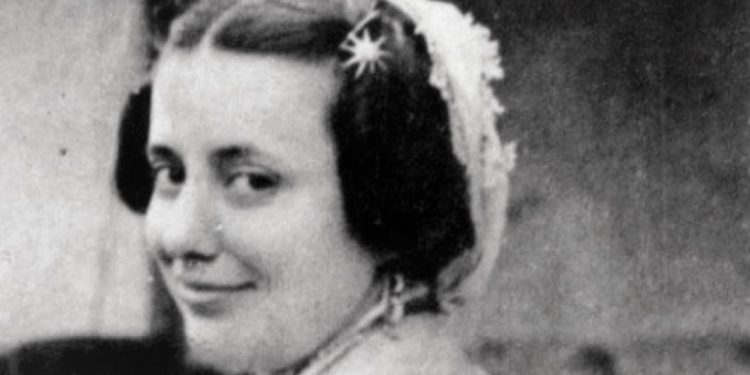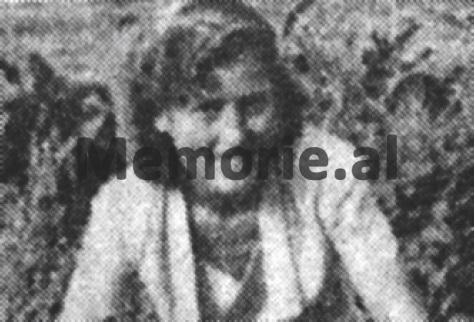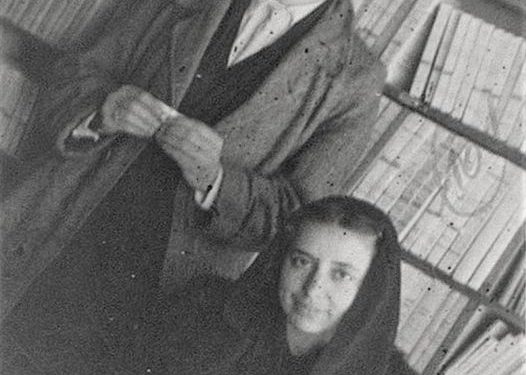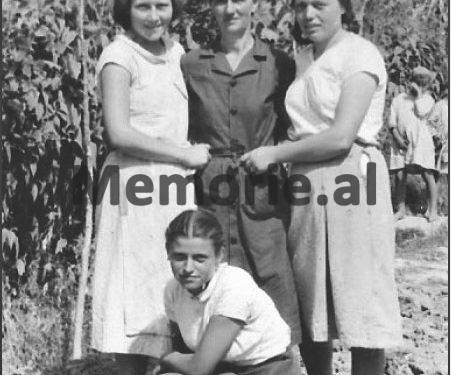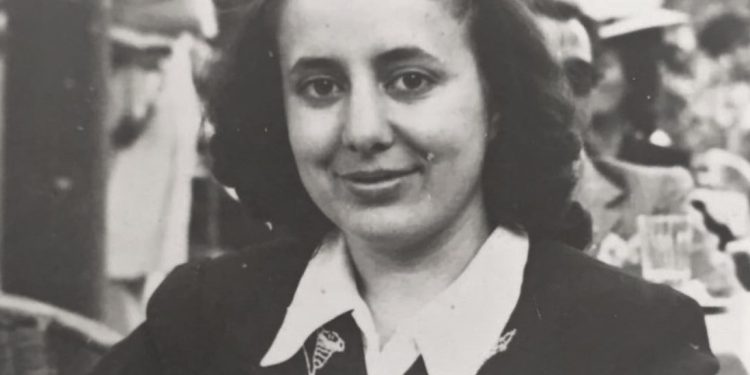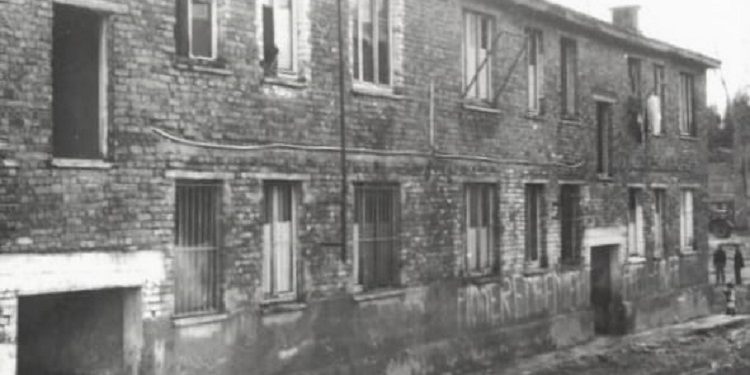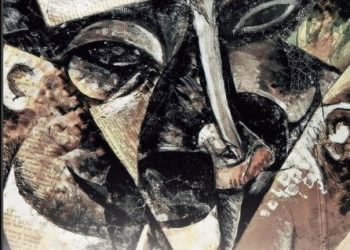From Agim Musta
Part twenty one
Memorie.al / On the fourth anniversary of the passing away of the well-known historian, researcher, writer and publicist Agim Musta, (July 24, 2019), former political prisoner, his daughters Elizabeta and Suela, gave him the right to exclusivity for the publication, by the online media Memorie.al, of one of the author’s most prominent publications, such as the ‘Black Book of Albanian Communism’. This work contains numerous data, evidence, facts, statistics and arguments unknown to the general public, on communist crimes and terror in Albania, especially against intellectuals, in the period 1945-1991. The publication for the first time of parts of this book is also the realization of one of the bequests of the historian Agim Musta, who, from the beginning of 1991 until he passed away, for nearly three decades was engaged with all his powers, working to raise collective memory, through book publications and publications in the daily press. All that voluminous work of Mr. Agim Musta, concretized in several books, is a contribution of great value to the disclosure of the crimes of the communist regime of Enver Hoxha and his successor, Ramiz Alia. A good part of the publications of Mr. Agim Musta, is also translated into English. Thanking the two daughters of the late Musta, who chose Memorie.al, to commemorate their father, from today we are starting the publication, part by part, of the “Black Book of Albanian Communism”.
Continues from last issue
-Portraits of fellow sufferers-
(1945-1991)
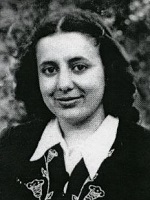 The undefeated Musine Kokalari
The undefeated Musine Kokalari
Musine Kokalari, this “Bubulina” of the twentieth century, started her political activity as early as in the banks of the Female High School in Tirana, from the end of the thirties. Born in a family of intellectuals, in 1917, with parents and brothers who are lawyers, with opinions from the most moderate for the time, she was kneaded from childhood with progressive ideas, with boundless love for the Albanian lands and with hatred for totalitarian regimes. Being a deep connoisseur of the national base and world culture, she embraces the social-democratic ideal as the only path for the progress of our country. He graduates with honors from the University of Rome and rejects the position given to him in the Faculty of Letters of this university, only to be among her people, in those difficult times.
The fascist invasion of April 7 deeply saddened Musine, but she is convinced that dictatorships have short lives that the fascist Rome-Tokyo-Berlin axis will lose the predatory war, that Albania will be freed from the fascist yoke, that freedom and justice they will triumph. During the years 1940-43, Musineja developed a feverish political activity with intellectuals with a pro-Western democracies worldview, who were regular supporters of the first press messenger in Albania, which she led so successfully.
She discussed with pathos the critical situation in the country, the events on the war fronts and drew conclusions about the imperative tasks of the Albanian intelligence in the created situations. She followed with distrust the dubious activity of the Albanian Communist Party, revealing the negative role of the emissaries with the foreign invaders and warning them of the shameful end.
After the failure of the Mukje Conference, August 1943 and the capitulation of Italy on September 8 of the same year, Musineja set to work for the immediate creation of the Albanian Social-Democratic Party, as a political grouping between the right-wing parties of the Front, Legality and the Party Communist. Together with the lawyer Skënder Muço, Professor Isuf Luzi, the lawyer Abaz Omari and others, they formed the Albanian Social-Democratic Party and illegally published 6 issues of the newspaper “Voice of Freedom”, an organ of the PSD.
Musineja held numerous meetings with independent intellectuals and political party leaders to create a pluralist national liberation front, which was rejected by the Slavophile-led Albanian Communist Party. Precisely for this political activity, Musineja was targeted not only by the German Gestapo, but also by the communist leadership, especially by Enver Hoxha, who knew well her character and intellectual strength, as she was related to the aforementioned.
In 1944, Skënder Muçoja, after consulting with Musine, organized the armed forces of the PSD in the Dukat of Vlora, next to which an American military mission was assigned, which maintained constant contact with the allied command of the Mediterranean. The duchy was prepared as a base for the possible landing of the Albanian communist armies, which ordered the immediate annihilation of this gathering of forces, to eliminate any support from the Western allies.
These actions of the Albanian social democracy alarmed the German Gestapo, which treacherously arrested Skënder Muço at the end of August 1944, together with Professor Ismail Yzeir and Sako Mezin, who shot them the same day, in the Kallm village of Lushnja, with order of General Fistum. This was a great loss for the Albanian social democracy and caused a deep shock to Musine, which temporarily, in the created districts, stopped its activity.
On November 12, 1944, when fighting was still taking place in the streets of Tirana, Musineja was arrested together with her two brothers, Vesimim and Muntaz Kokalari, by a partisan command, on the secret order of Enver Hoxha, and was held in custody for two weeks in a base returned to prison, while her brothers and cousin, Syrja Kokalari, were barbarically killed in the gardens of Hotel “Bristol”, which was located in the center of Tirana, together with 9 other innocents.
Of course, the cruel murder of her innocent brothers was another heavy blow for the fragile Musine, but this increased her hatred and activity against the red plague, which had spread the claws of death throughout our country. Although under surveillance and followed closely by the Security agents, with the courage and ingenuity that characterized her, she managed to create new political connections with her former acquaintances who had escaped the communist terror.
In March 1945, he formed a political group, among others, Professor Gjergj Kokoshi and lawyer Suad Asllani. In the summer of 1945, she came into contact with two groups headed by Sami Qeribashi and Qenan Dibra, drafted the memorandum, which was sent on behalf of these groups to the allied military missions accredited in Tirana and on November 6, 1945, with her efforts titanic, in the house of Ali Kavaja, in the neighborhood where the Albanian Communist Party was formed 5 years ago, the first anti-communist opposition group “Bashkimi Demokratik” was formed.
At the meeting on November 6, the content of the memorandum, dated December 2, 1945, for the National Assembly was unanimously approved by all those present, according to which these elections would be manipulated by the NPSH and every democratic principle would be violated. Unfortunately, the allied governments were silent and the voice of the opponents of the communist regime in Albania knocked on the deaf door.
Musineja personally, despising the danger hanging over his head like the sword of Damocles, meets with the English colonel Palmer, giving him a verbal exposition of the situation in the country, the elections and the demands of the clandestine opposition, but again the silence and sacrifice of the Albanian opposition for the sake of the political conjunctures of the time.
Albania is left under Belgrade’s umbrella and risks losing its independence, turning into a seventh republic of Federal Yugoslavia. In January 1946, Musineja was arrested, thus beginning the ordeal of forty years of torture and torment.
She stoically endures all the tortures and insults of the ignorant investigators and executioners, appears before the military court chaired by Frederik Nosi and prosecutor Nevzat Haznedarin, maintaining a dignified attitude and not denying her political views at all. With her retorts prominent and full of arguments, Musineja puts the accusers on the pillar of shame. Sentenced on July 2, 1946 to 20 years in prison, as a “saboteur and sworn enemy of popular power”.
Get to know all the prisons of the communist dictatorship, including the prison-hell of Burrell. Throughout the years of her sentence, Musina was subjected to the most diabolical pressures, at the behest of the dictator himself, who insisted that she break morally and was asked to say only two words: I apologize, promising immediate freedom and a sufficient pension.
She had no temptation and the emissaries sent by Enver Hoxha, for this purpose, returned empty-handed and bowed, taking with them the categorical opposition of Musine. The great inquisitor could not bend the Albanian Joan of Arc. She became a symbol of Albanian dissidence and spiritual leader of communist women.
Many former political convicts, such as; Drita Kosturi, Rita Koka, Nurije Koçuli, Qefsere Begeja, Hava Golemi, Marije Medicina, Jolanda Tafmizi, Lavdije Petrela, and others, speak with reverence for Musine’s dignified attitude towards the tools of the dictatorship, for her advice to stay with high morals and for the ideas that stuck in their souls and minds for the victory of freedom and the destruction of dictatorship. He was released from prison in October 1961 and exiled for life in Mirdita Street.
She works in agriculture and in construction as a mortar worker, wearing knee-high rubber boots. Winter and summer. He is eavesdropped day and night by Security agents and is not allowed to leave even 100 meters from the place of internment, without the permission of the Department of Internal Affairs. He is looked upon with admiration and fear by the inhabitants of Mirdita, but no one dares to approach him and say a word to him. Exhausted by endless suffering and overwhelmed by hard work, Musineja fell ill with cancer and died alone in the place of exile, on August 14, 1983, without a single human hand to close her eyes.
She is accompanied to the last apartment by two Municipal undertakers and by the Security operative, who would draw up the last report on this heroine. Her figure, both polyhedral and tragic, is a unique simile not only for our country, but for all the countries of Eastern Europe, which languished for half a century under communist terror.
Musineja got involved in politics, not as a careerist eager for power, but to protect national interests in dramatic moments for our country and to save the nation from the tragedy prepared by Albania’s enemies, the Slavs, chauvinists, sugared with communist ideology . It is imperative that Albanian art and literature present to the new generations with objectivity and realism bright figures like Musine Kokalari, left in oblivion and denigrated by the communist regime. May her memory be eternal!
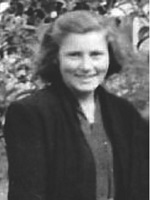 A life of suffering Vera Dema
A life of suffering Vera Dema
I met Vera Dema in 1992, at the Association of Former Prisoners and Political Internees. Her ordeal had already started in November 1944. She was 13 years old when they took her home and forced her out in the middle of the street. Although more than half a century has passed, she never forgets that black day. Here’s what she remembered with sadness: “That day was the beginning of my ordeal, an ordeal that would end after half a century. Fifty years of suffering and misery. No one believes such a thing.”
In the first list of internment, which was drawn up by the Ministry of Internal Affairs, in February 1945, Vera’s name had the ordinal number 12. She was interned with her whole family in Berat. They kicked him out of school and forced him to do hard physical work. Often the policemen accompanying them punished them physically.
Her brother, 10-year-old Ali, was punched in the ear and deafened for life. They followed him step by step and provoked him hour after hour. Before he turned 15, he was arrested. They tortured him for eight months, in the cells of the Security. They asked him to affirm that he had connections with the fugitives, inside and outside the country. The task of the executioner was taken over by the head of Security, Strati Papa.
In order to punish him criminally, they raised his age with a false record. He spent two years in Berat prison. After finishing his sentence, he was sent to the internment camp in Tepelena. The camp was located by the river Vjo, in the center of the crazy “headquarters of the winds” of Tepelena. It was a camp for old men, women and children. There they had gathered 2,500 unfortunates, sheltered in five half-ruined barracks.
They were entirely from Northern Albania. They suffered because of the “guilt” of their husbands, who fled to the mountains or outside Albania. They fed them oatmeal and groats full of flies and worms. Their bread was cooked with barley flour, left over from the time of the Italian occupation. In 1950, a disease struck the camp, which claimed 300 lives within a month. There was no more room in the cemetery. People started burying them in the mud pit by the Vjosa River.
“Women and girls,” says Vera, “were sent every day to the mouth of Mezhgoran, to bring wood to the camp. Four hours of travel, with a heavy burden on their backs. From fatigue and exhaustion, many women and girls had fallen into the abyss on the edge of Vjosa. In autumn and winter, they would return to the camp wet up to their armpits and frozen from the cold. They would take out their clothes and put them on blankets to dry. The camp policemen, with the commander, Xhafer Pogaçen, would take them away from us the blankets, to see our naked bodies.
Those who protested were handcuffed to poles in front of the camp and left in the rain and cold for hours. There were also cases when buckets of feces were hung around their necks. No medical help and no one dared to raise their voice, about this extermination camp”! At the end of 1954, two hundred internees were removed from the Tepelena camp and sent to the fortress of Porto-Palermo, on the coast of Himara. Between Vera was also among them. She tells about this camp:
“They put us in the dark and damp cellars of the castle. Even during the day you could not see without the help of the light of the pine trees. We turned into prehistoric people. To quench our hunger, we ate oak logs. Forty internees risked death. The rescue of theirs was a miracle.
In the summer, they only gave us a bowl of water a day, to quench our thirst. The residents of Qeparo village looked at us with pain. They tried to help us when they were out of sight of the guards. From a heavy rain that fell during a winter night, we almost drowned. The water level reached a meter high, in the basements where we lived. God knows how we escaped that night!
The exiles of Porto-Palermo kept their eyes on the sea. They waited in vain for their salvation from someone who would come and take them out of that hell. One evening, the coast guard dictated the periscope of a submarine sailing near the coast. The alarm was sounded. The phones didn’t stop ringing. By special order of the Minister of the Interior, all 200 internees were removed overnight. They sent them again, to the extermination camp of Tepelena.
Later, for security reasons, the Tepelena camp was dispersed. The internees were sent to Myzeqe, where dozens of internment camps were built. “I was sent to the Savra camp, – says Vera. We were assigned to live in some barracks, where what rained outside, dripped inside. We worked in canals full of water and lice, which sucked even the little blood that we had left. Mosquitoes kept us awake at night. They paid us 1/5 of what free laborers get, as if all these evils were not enough, suddenly we also had a red rat. It was a rat that made you sick when you looked at him. He left nothing unbitten. Many internees were infected. Some of them died, without any diagnosis.
None of the rulers broke their heads. They cringed when they heard that many internees had been infected by the red rat. I got married in Savar. In 1964, they removed me from Savra together with my husband and exiled us to Ndroq village. They left us here until 1975 and then they interned us again in Myzeqe, in the infamous Grabiani camp, this time, besides my husband, I also had my 6-year-old son, Angel, with me.
I was assigned to work cleaning the pig stalls. Even for living, they lived there, in stables, separated into alcoves. They treated the animals much better than we did. They kept us under constant psychological terror. The fear of arrest was hanging over our heads. We were discriminated against everywhere: at work, in payment, from shopkeepers, from health care, in schools and everywhere we set foot.”
Grabiani and all the internment camps were slow extermination camps. At the same time, they were reserves for the supply of camps – prisons with forced labor.
After a sea of pain and suffering, Vera came to live in Tirana, in an apartment donated by the English “KAFOD”. Her bag was full of drugs. She suffered from a series of illnesses, but her desire for life is great. The many wrinkles on her once beautiful face were evidence of a life full of suffering and torture. He passed away in 2006, falling head over heels into the Communist hell. Memorie.al
The next issue follows




